What if Neo Took the Blue Pill
What if Neo chose comfort over truth? This deep dive into "The Matrix" explores the consequences of taking the blue pill and the philosophical cost of refusing to wake up.
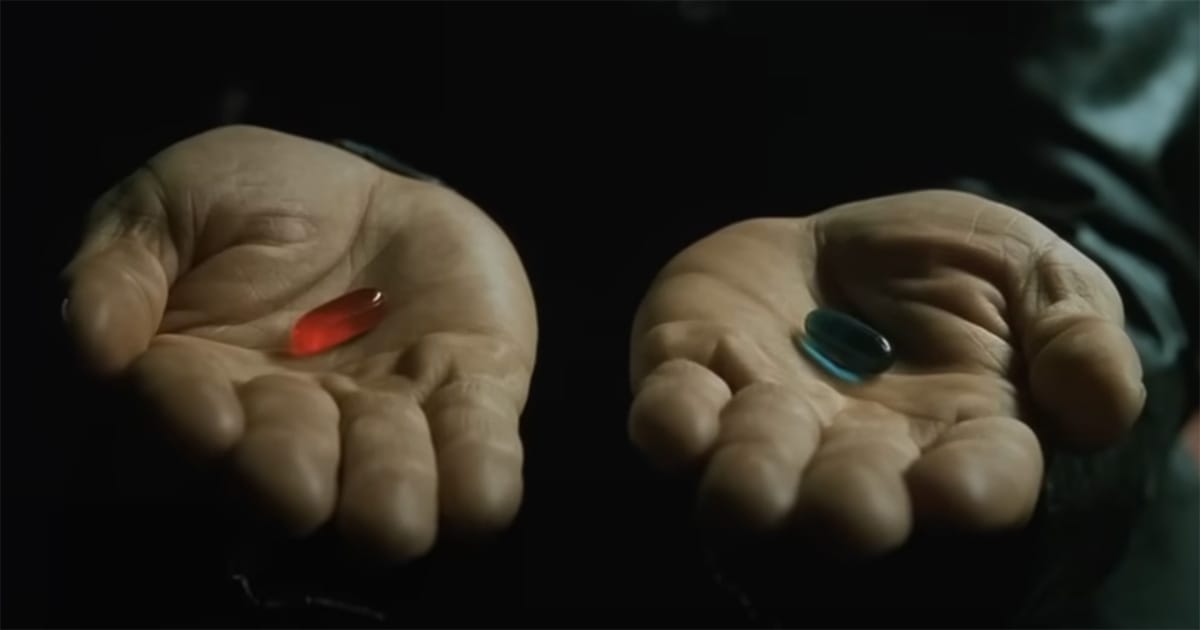
In "The Matrix," the moment Morpheus offers Neo a choice between a red pill and a blue pill is among the most iconic in science fiction cinema. The red pill promises truth, however difficult. It offers an escape from the illusion of the Matrix and a step into the harsh, real world. The blue pill, by contrast, offers comfort. Forget everything. Wake up in your bed and believe whatever you want to believe.
Neo chooses the red pill, and with it, the audience follows him into a labyrinth of philosophical inquiry, digital dystopia, and mythic prophecy. But what if he had chosen otherwise?
What if Neo took the blue pill? It is not just a question about plot mechanics. It is a question about destiny, agency, and the value of truth itself. For fans of classic science fiction who admire the moral rigor of "The Twilight Zone" or the cerebral tension of "THX 1138," this alternate path opens a rich vein of speculation. What happens when the "chosen one" refuses the call? Does the world continue unchanged, or does it unravel?
The World That Might Have Been
Had Neo taken the blue pill, he would have remained Thomas Anderson, a low-level programmer by day and an elusive hacker by night. His life would have resumed its familiar rhythm—cubicles, computer screens, and late-night digital trespasses into forbidden realms. But beneath the surface, the itch would remain. The sense that something is wrong, that reality is not what it seems, would continue to fester.
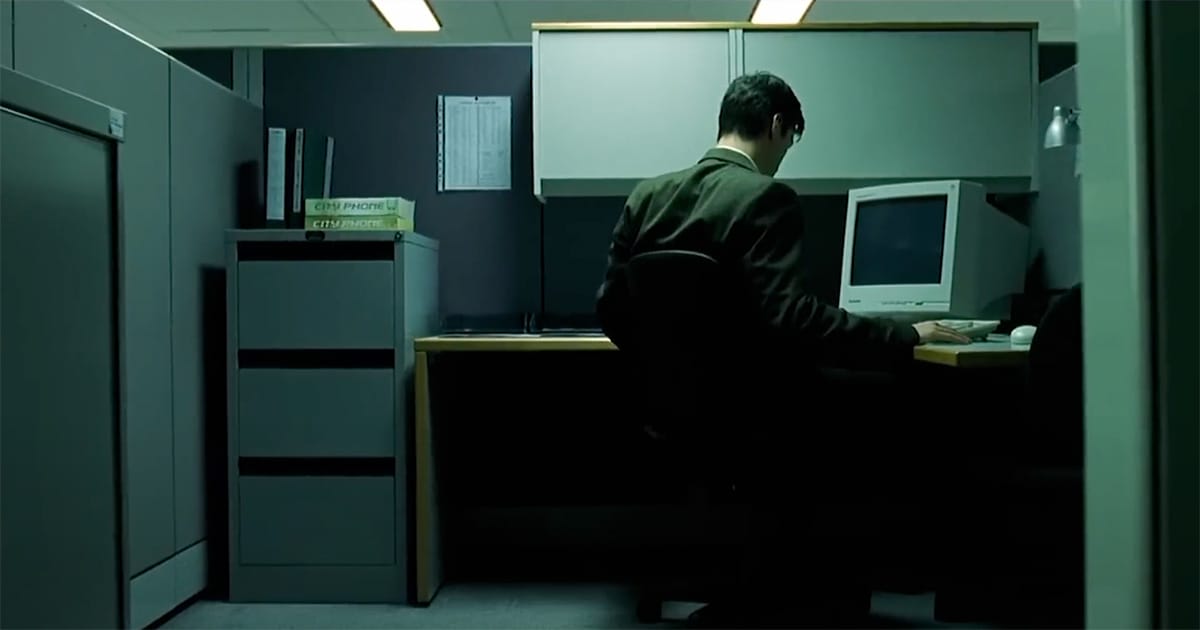
The character of Thomas Anderson is already marked by restlessness. He searches for Morpheus before Morpheus ever finds him. His decision to follow the white rabbit speaks to a soul already in rebellion, already aware—if only subconsciously—that the world is false. Choosing the blue pill might have dulled that awareness for a time, but only temporarily. Doubt lingers. It waits.
Whether Neo's suppressed potential would eventually break through or be extinguished is difficult to determine. In classic science fiction, we see similar tensions in stories like "Logan's Run," where characters initially accept their constraints but ultimately seek truth. The difference is that Neo had his chance—and refused it.
In this alternate path, Thomas Anderson may have become a man haunted by missed opportunities and a quiet sense of failure. Or worse, he might have learned to silence the signs, to ignore the inner voice that urged him to question. And if that happened, then the Matrix would have won—not by force, but by surrender. The war would end before it even began.
A Crumbling Hope
Had Neo walked away from the truth, the first and most immediate casualty would have been Morpheus's belief. More than a leader, Morpheus is a zealot. His faith in the prophecy of the One is absolute. He sees Neo not as a possibility, but as a certainty. That certainty fuels his courage, his strategy, and the cohesion of his crew. Remove Neo, and you do not just lose a fighter—you unravel the very myth that holds the Resistance together.
Could Morpheus have recovered? Possibly. The Oracle may have offered a new path, suggesting another candidate. But time is not on their side. The machines are closing in. Zion is vulnerable. In this altered timeline, the Resistance may continue to fight, but without Neo, the fight becomes grim and increasingly desperate.
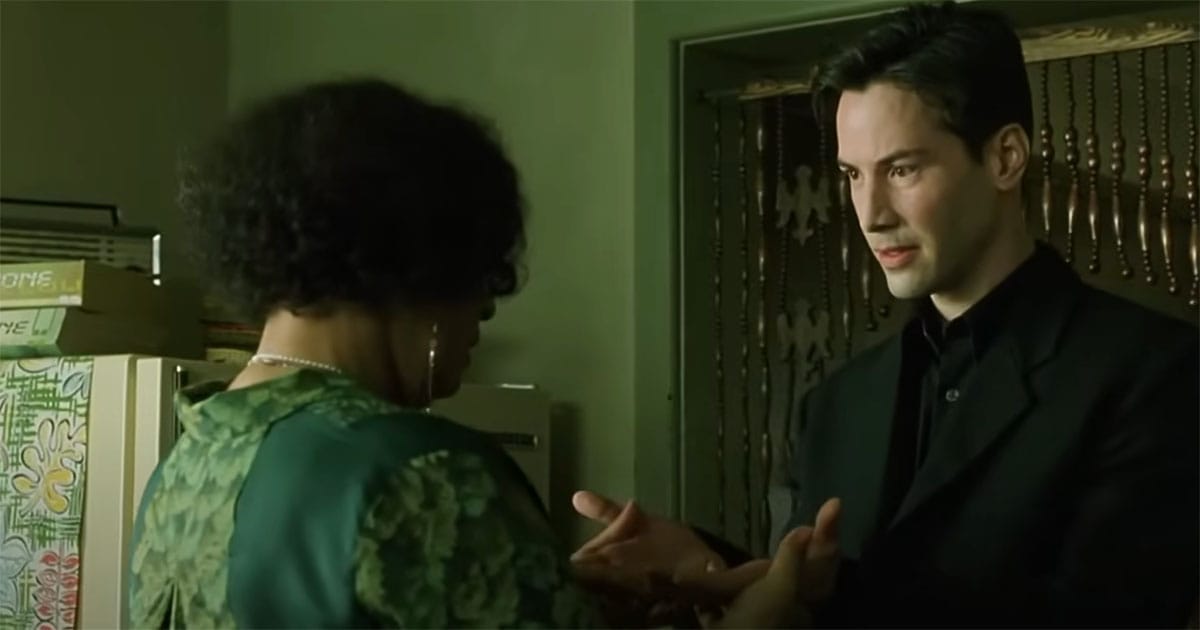
Classic science fiction has long wrestled with the tension between fate and free will. In "The Terminator," fate seems inescapable, yet human action still matters. In "Foundation," history appears predetermined, but individual choices cause ripples. In "The Matrix," prophecy and personal agency intertwine. Neo's rejection of the red pill would have severed that link. It raises the question—was he ever truly the One, or was the role something he had to grow into?
Without Neo, the Resistance becomes a movement without a messiah. The promise of liberation dims. What remains is the cold machinery of survival, stripped of destiny, driven only by the fading hope that someone else, someday, might choose differently.
Comfort Over Truth
The blue pill is not just a plot device. It is a philosophical declaration. It represents the deliberate choice to remain blind. Within the Matrix, it is the offer to return to a world that is comfortable, predictable, and entirely false. When Neo chooses the red pill, he embraces pain, uncertainty, and freedom. Had he chosen the blue, he would have opted for ease at the cost of clarity.
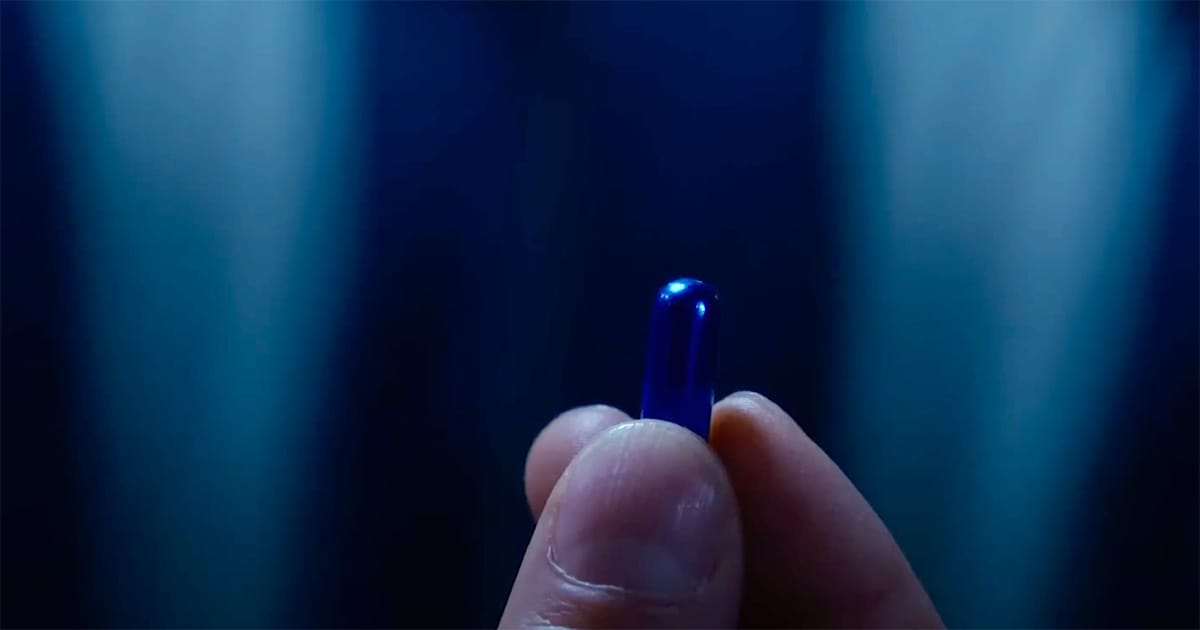
This dilemma echoes one of the oldest thought experiments in Western philosophy—Plato's "Allegory of the Cave." In that tale, prisoners live their lives watching shadows on a wall, believing them to be real. When one escapes and sees the world beyond, he understands the truth—but returning to enlighten the others proves nearly impossible. The blue pill is the choice to stay in the cave, to prefer shadows over light.
George Orwell warned of similar dangers in "1984." His vision of a society controlled by illusion and enforced ignorance is not far removed from the Matrix itself. In both cases, the mind becomes the battleground. When people accept illusion as truth, they surrender not just their freedom, but their capacity for growth.
The Matrix is a metaphor for spiritual and intellectual passivity. It is the comfort of screens, routines, and unexamined beliefs. To reject reality is to forfeit the struggle that makes a man fully alive. If Neo had taken the blue pill, he would not only have lost his chance at purpose—he would have affirmed a world where ignorance is virtue and truth is expendable. For the Resistance, that loss would have been tragic. For humanity, it would have been fatal.
Refusing the Lie
Neo’s decision remains one of the most powerful moments in science fiction—not because it sparks battle, but because it affirms the principle that truth is worth choosing, even when it hurts. He chooses reality over illusion. That choice defines him not only as the One, but as a man.
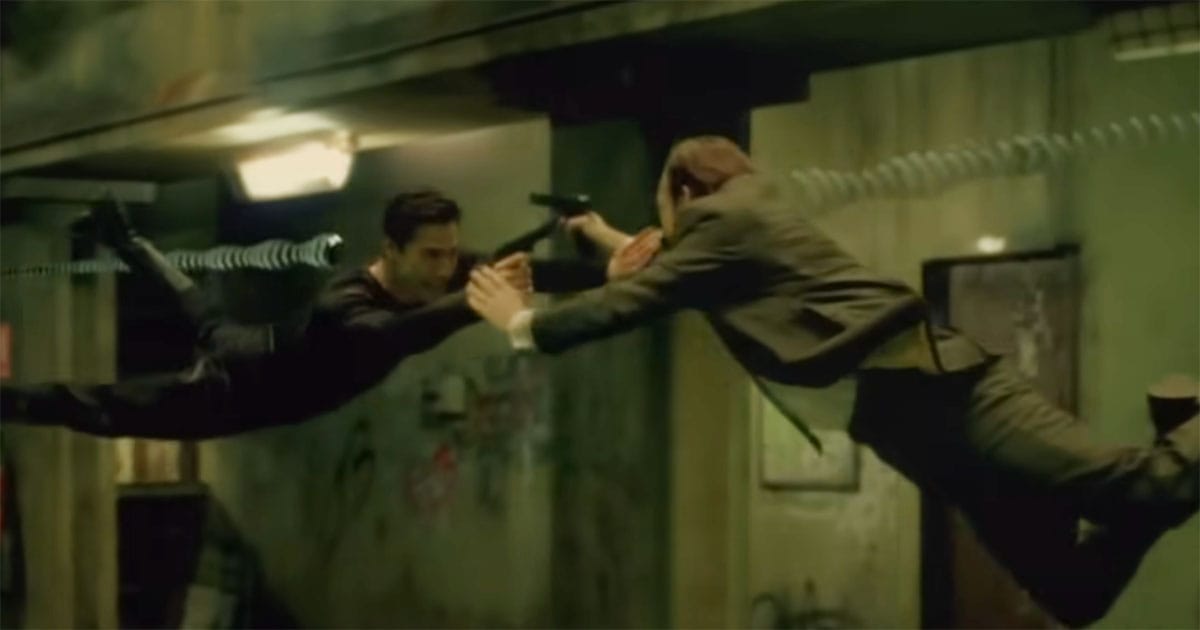
This hypothetical—what if Neo took the blue pill—forces us to confront the ease with which truth can be traded for convenience. It reminds us that the first step toward freedom is not rebellion or violence, but the simple, defiant act of seeing things as they are.
Science fiction has always asked uncomfortable questions. It shows us reflections we might rather ignore. Yet in asking "what if," it sharpens our vision. In imagining a world where the hero stays asleep, we better understand the cost of waking up—and why it matters that he did.

